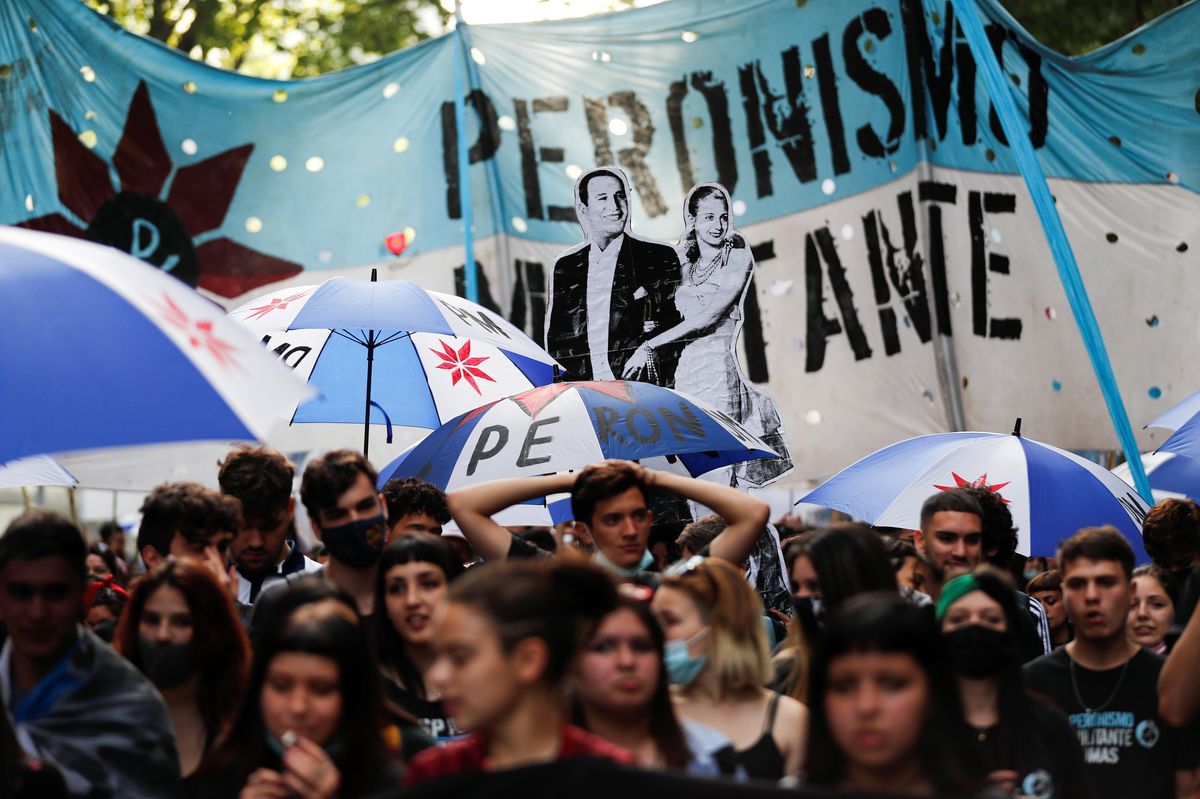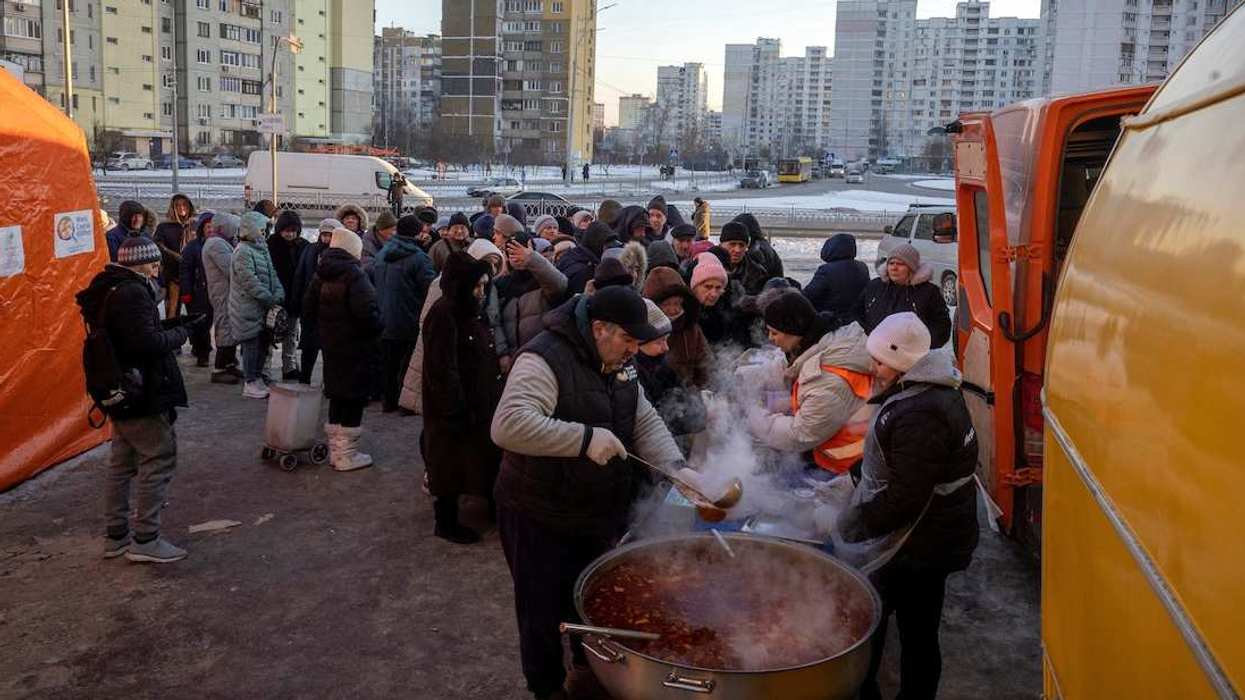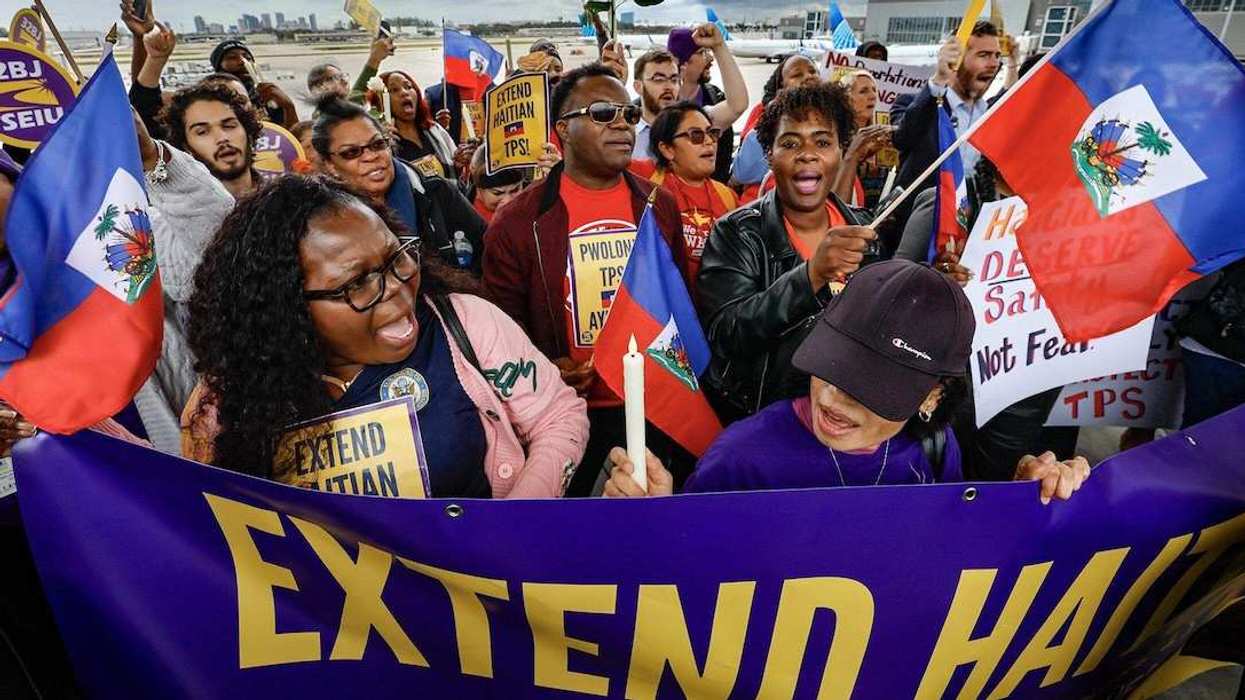Argentina is famous for tango, literary greats like Jorge Luis Borges, and for producing (arguably) the world's two best soccer players of all time in Diego Maradona and Leo Messi. It's the third-largest economy in Latin America, and a global agricultural powerhouse.
Unfortunately, the country is also known for chronic political instability and has long been tagged an economic basket case — the direct result of successive populist governments spending beyond their means, and getting others to foot the bill for their mismanagement.
Messy politics and economic emergencies are all too common in Argentina. But after Sunday's midterm elections, Argentines can expect an especially rocky next two years.
The power brokers now have their backs to the wall. Argentina's ruling coalition, led by the Peronista party — named for nationalist, populist former president Juan Perón — has lost control of both houses of parliament for the first time since the restoration of democracy almost 40 years ago.
Even when the pro-business Mauricio Macri served as president (2015-2019), the Peronistas dominated the legislature, preventing his government from passing most laws they didn't want. Without his parliamentary cushion, Peronist President Alberto Fernández will now face a steep uphill battle in the second half of his four-year term.
This defeat comes at the worst possible time for the already-embattled Fernández. After COVID hit Argentina and its economy hard in 2020, annual inflation rose. It's now hovering above 50 percent despite the government's decision to cap the cost of 1,432 different products. The value of the peso has plummeted against the US dollar in 2021. Four out of 10 Argentines now live in poverty, up five percentage points from the day Fernández took power in December 2019.
Argentines have flooded the streets many times in recent months to protest one of the world's longest pandemic lockdowns. Fernández can expect more such public anger as economic conditions worsen.
The president also has problems within his political family. After the Peronistas were defeated two months ago in the midterm primaries, a dry run for Sunday's election, his powerful VP Cristina Fernández de Kirchner (no relation) forced him to reshuffle the cabinet. Expect the two to fight even more from now on.
But the former president, Argentina's best-known Peronista, is in an awkward position of her own. Many believe she pulls the president's strings and can mobilize large-scale street protests in Buenos Aires. But Fernández de Kirchner also knows that forcing Fernández to step down to advance her own political comeback is risky because Argentines haven't forgotten the corruption scandals that plagued her presidential reign.
The broader question is what will happen in Argentina when the Peronistas can no longer dictate laws. The opposition has long claimed that Peronist big-spending policies have led to crisis-provoking levels of debt, inviting intervention by the deeply resented International Monetary Fund. It's an open secret that Fernández might stiff the IMF on $19 billion due in March 2022, but the opposition could now make him negotiate a compromise against his will.
The consequences of an IMF default, which would be Argentina's third in 20 years, could be catastrophic for the economy. International credit would dry up, possibly provoking a run on local banks similar to the Corralito crisis in the early 2000s, one of the country's worst financial meltdowns ever.
Bottom line: the Peronist stranglehold on Argentine lawmaking has been broken. Argentine voters have made clear what they don't want. They now have two years to decide what they do before heading to the polls to elect a president in 2023.

















